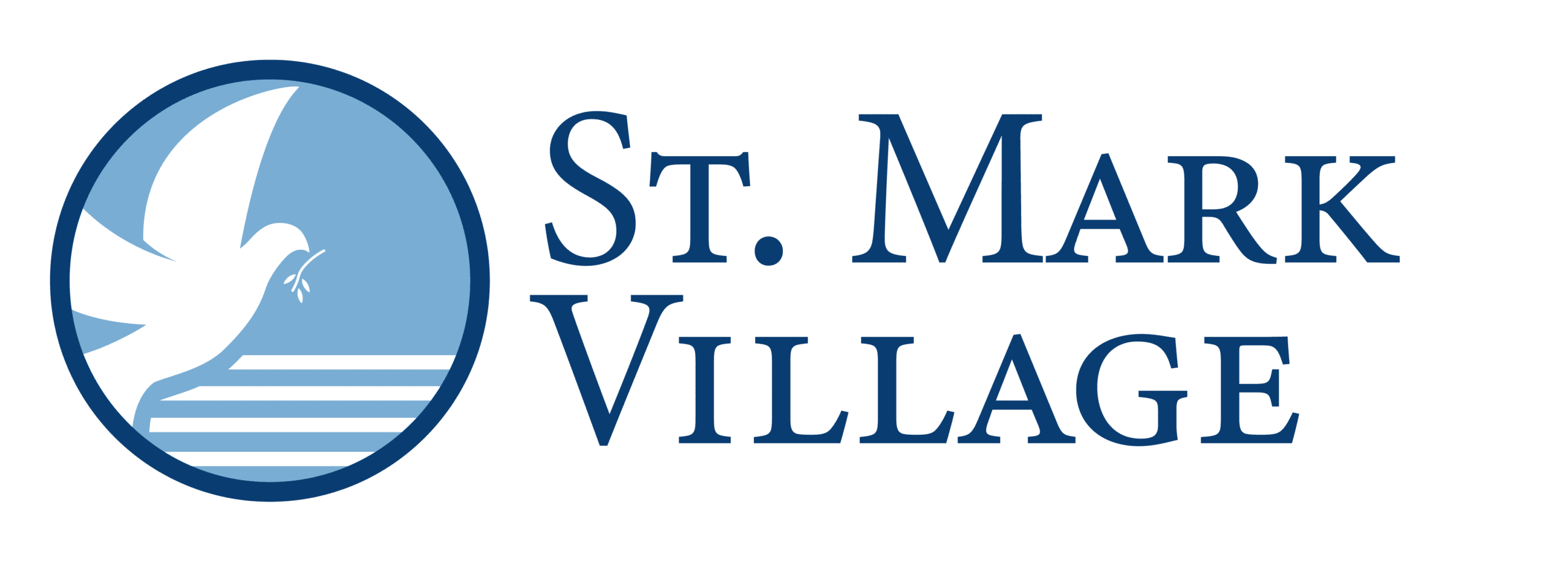
Understanding options for funding senior living is much easier when you have a basic knowledge of some common financial terms. Good news: you don’t need a degree in economics! In fact, here are some easy definitions to help you get started.
If you have questions or need more details, remember we at St. Mark Village are here to assist you any way we can. We want to make planning your retirement as easy as pie!
Funding senior living: a few financial terms and a brief description of what they mean.
1. Reverse mortgage
A reverse mortgage is a type of home equity loan for homeowners aged 62 or older. It allows borrowers to access a portion of the home’s equity and use the home as collateral. The loan generally does not have to be repaid until the last surviving homeowner permanently moves out of the property or passes away.
2. Insurance conversion
The insurance conversion option for funding senior living allows you to convert a life insurance policy into a Long-Term Care Benefit Plan. Anyone with an in-force life insurance policy can transform it into a pre-funded financial account that disburses a monthly benefit to help pay for long-term care needs such as home care, assisted living, skilled nursing, and hospice. Unlike life insurance, this account is a Medicaid-qualified asset.
3. Veterans Aid & Attendance
Although this benefit has been around since the 1950s, it is relatively unknown, and even those who are aware often don’t fully understand the difference it can make when it comes to funding senior living.
Wartime veterans or a surviving spouse with limited income may be eligible to receive a non-service-connected pension to assist in paying for long-term care such as assisted living, home health care, adult day care or skilled nursing. Known as Aid & Attendance (A&A), this increased monthly pension amount may be added to your monthly pension if you meet certain conditions.
4. Bridge loan
By definition, a bridge loan is a short-term loan used until a person or company secures permanent financing or pays an existing obligation. It allows the borrower to meet current obligations by providing immediate cash flow. Bridge loans have relatively high interest rates and are usually backed by some form of collateral, such as real estate or the inventory of a business.
One of St. Mark Village’s Partners, Second Act Financial Services, offers a bridge financing program that was specially created by bank professionals who understand the needs of seniors looking for both financial flexibility and time to see their home for the best possible price. The Second Act Home Equity Line of Credit for Senior Living can help you fund your Entrance Fee or monthly service fees at St. Mark Village.
5. Life care
A Life Care Community or Continuing Care Retirement Community (CCRC) offers various amenities, services, and levels of care. Choosing Life Care can mean financial security, value, and peace of mind. For example, with Life Care at St. Mark Village, your care is guaranteed for life—even if your financial situation changes.
In addition, for seniors who itemize their taxes, the potential tax advantages of moving into a CCRC are two-fold: a one-time deduction of a percentage of your entrance fee, and an ongoing deduction of a percentage of your monthly fees. After the first year of occupancy, a resident could still receive up to a $10,000 deduction just for the monthly service fees.
At St. Mark Village, residents receive a letter explaining how the admission fee and monthly service fees can be reported as a pre-paid medical expense deduction on the tax form.
6. Admission process
Understandably, most people will have many questions when thinking about coming to a Continuing Care Community and what funding options are available. At St. Mark Village, experienced Sales Counselors will guide you through each part of the admission process, including an in-depth analysis of your financial picture, ensuring that your investment in St. Mark Village is the very best decision for you. They will explain our admissions agreement and what our guarantee of Life Care really means for your future.
7. Admission fee
Other terms for this are entrance fee, buy-in fee, or community fee. This is a one-time, upfront fee many senior living communities require before a resident or residents can move in. The fee generally covers services provided at the community.
8. Residency agreement/Contract
This document outlines your rights and obligations, as well as those of the community, regarding (but not limited to) care, services, amenities, and residences. At St. Mark Village, we offer multiple contract options—Traditional, Monthly Service Fee Discount, and 50% Refundable—so you and your family can choose the one that works best for your needs.
9. Monthly service fee
Depending upon the community, a monthly service fee generally covers monthly rent of a residence, some meals, and access to a range of amenities and services. At St. Mark Village, our monthly service fee includes all utilities (Wi-Fi, cable and phone). It also covers one fine-dining, five-course meal a day, scheduled transportation, weekly housekeeping, general maintenance, security, resident nurse visits, and wellness and life enrichment programs.
10. Elder law
Elder law covers legal counseling for seniors and individuals with special needs, addressing healthcare, estate planning, funding senior living, public benefits, housing, and various legal issues related to aging. If you need help setting up a living trust. Applying for Veterans benefits. Updating a will or other financial documents. Protecting your assets from fraud. An elder law attorney can offer assistance.
The more you ask, the more you’ll know.
When considering a move to senior living, don’t be shy about asking all the questions you may have. Whether it’s about levels of care, benefits of a certain location, which contract option works best for you (as we offer multiple contract options!), or details about funding senior living. You’re planning your future, and you want to do so with confidence. We’d be honored to help you, it’s as simple as requesting to speak to one of our advisors.
Life Care gives you a plan. And your family, peace of mind. Download our free guide, Financial Planning Guide to Retirement Living at a Life Plan Community or contact us. We’d love to hear from you.

